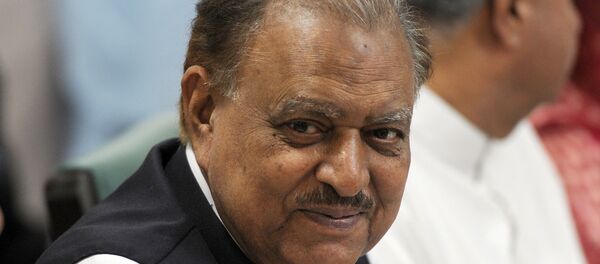The judiciary reached a unanimous decision in what has become one of the most unprecedented and controversial cases in the country's history, with advocates arguing that it did the right thing since the courts proved that every Pakistani is equally accountable under the law, while opponents allege that it was an arbitrary move that was more about carrying out a "soft" regime change than anything else.
It's here where both sides begin to diverge with their differing interpretations over what came next. Sharif's supporters speculated that hostile elements of the Pakistani "deep state," particularly those in the military, secretly wanted to oust the elected Prime Minister and were using the anti-corruption court proceedings against him as their publicly plausible vehicle for doing so. For these reasons, they consider Sharif's disqualification as a sort of "military coup" in spite of the civilian government still remaining in place.
The other camp of Pakistanis refute this explanation of events and insist that the courts were acting independently the entire time, which is something that the country and its citizenry should feel immensely proud of because of what it says about the maturing state of Pakistani democracy. Instead of condemning this as a "coup," they celebrate it as justice finally being served to a corrupt politician.
This is an interesting affair to follow in its own right, but it takes on regional and even global implications when one considers that Pakistan is a nuclear-armed Chinese ally at regular odds with India, and that developments in this country could affect the stability of the over one billion people living in the subcontinent. Moreover, Pakistan hosts the game-changing China-Pakistan Economic Corridor, or CPEC, which aims to provide the People's Republic with unrestricted access to the Indian Ocean, and this project has already become a politicized issue in the run-up to, and wake of, Sharif's disqualification.
Tayyab Baloch, Islamabad-based regional security expert, writer at Geopolitica.Ru, and reporter at Abb Takk TV, and Shahid Raza, geopolitical analyst currently serving as the director of the geopolitical research project @CommandEleven consulting in Islamabad, joined our show to discuss the issue.
Want to sound off and share what you think about this? Send us an email at radio@sputniknews.com or find us on Facebook!




